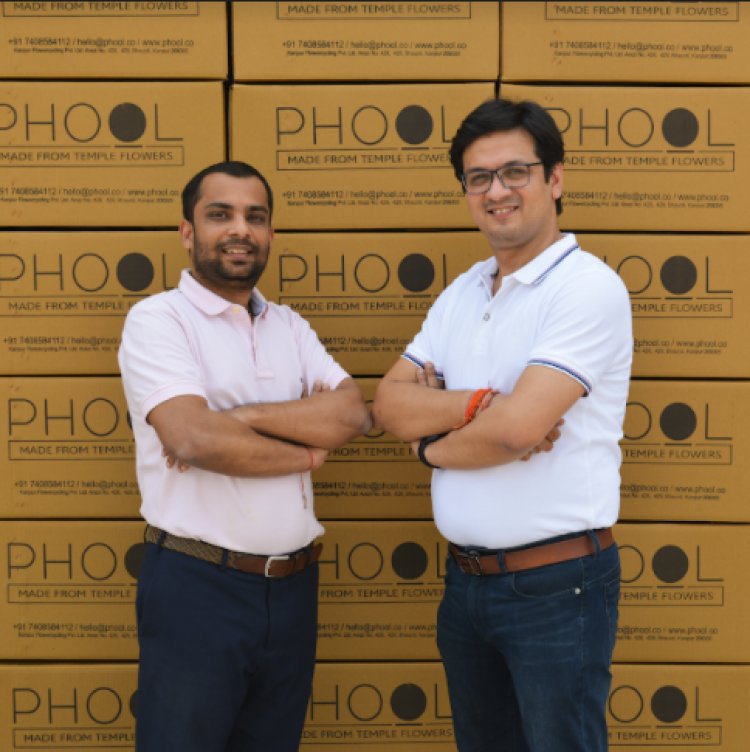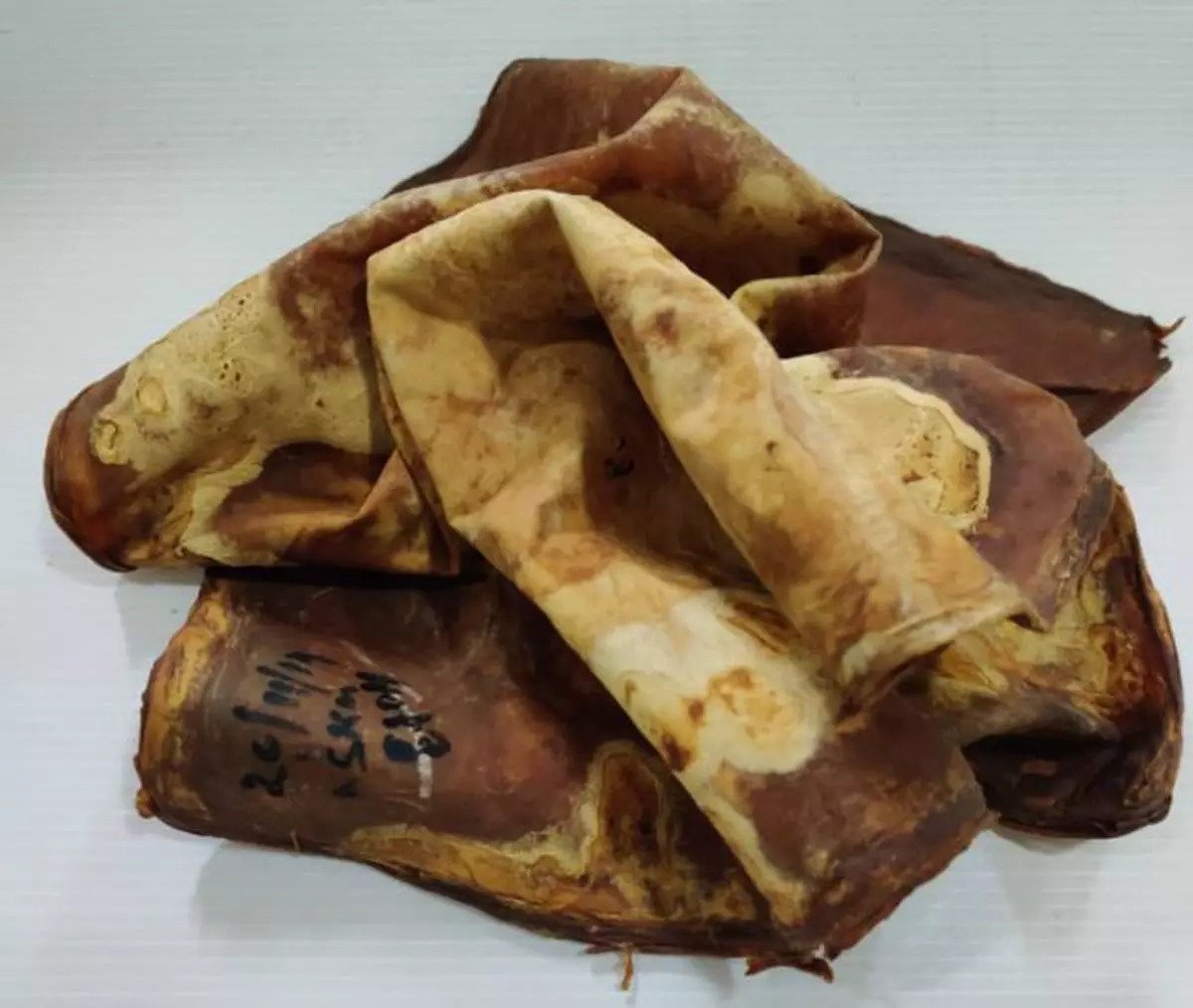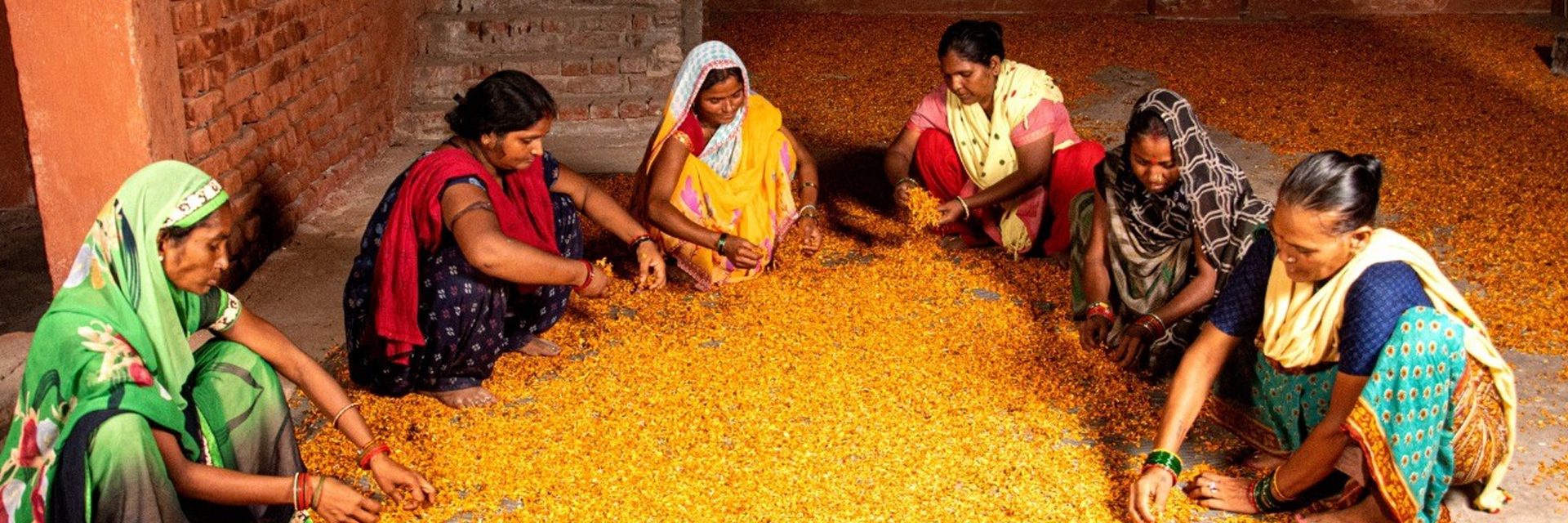(June 23, 2023) Ever wondered what happens to the flowers offered to the Gods in temples and mosques across the country? Well, the floral waste mostly makes its way to either dumping yards or rivers in the vicinity, adding to the pollution. It was at one such ghat in Kanpur that Ankit Agarwal, a native and an engineering student, had an epiphany. That watershed moment changed it all and gave birth to India’s first biomaterial startup Phool in 2017, which five years later, became one of the finalists at the Earthshot Prize 2022.
The Kanpur-based startup accumulates floral waste from temples in Uttar Pradesh, including the biggest temple, Kashi Vishwanath, averting 13 tonnes of waste flowers and toxic chemicals from reaching the river every day. The waste is then handcrafted into charcoal-free incense sticks and essential oils through ‘flower cycling’ technology by women from Dalit communities that the startup has employed. Moreover, they convert the floral waste into a material “that behaves exactly like animal leather” – Fleather.

Ankit Agarwal with Phool Head of Operations Prateek Kumar
“Fleather solves multiple problems. First, there is the deep environmental footprint of animal leather. Second is the inhumane animal slaughtering. The third is the pollution caused by ceremonial flowers in rivers in India,” says Ankit Agarwal, the founder of Phool, which has now found a new home in Bodhgaya. The startup earned Ankit a spot in the Forbes 30 Under 30 list. He was also named one of the 17 young leaders for Sustainable Development Goals (SDGs) by the United Nations.
How flower waste gave birth to Phool
It was on a wintery morning in 2015 that Ankit accompanied his friend to Ganga ghat, as the day was an auspicious one. It was Makar Sakranti, and the duo could see ghats filled with people performing suryanamaskars and pujas. While the festive fervour was on a high, these engineering lads were aghast by the sight of the devotees drinking and bottling up the river water which was evidently murky. “In spite of being one of the most revered water bodies in India, we started wondering why this was river turning carcinogenic and if it was us, the worshippers, who had turned against the river,” he writes on Phool website.
But gazing hard at the filthy water, he couldn’t help but notice the flowers that were dumped into the river from the nearby temples turn into mulch as their colour started to fade away. This was enough to put Ankit into action, and he began researching on the subject. Combing through reams of information, he found that most of the flowers that make it to the temples are loaded with pesticides and insecticides, and once they reach the river, the chemicals wash off, mixing with water and making it toxic, thus threatening marine life. This pushed Ankit to start Phool with the mission to repurpose the waste coming from places of worship.
Giving marginalised community a chance
Like most startups, this one too had its teething troubles. The idea of further using waste flowers seem absurd to many, and the team had to work hard to convince people to the idea of recycling as no one was ready to take them seriously. But after much effort and persuasion, the idea set rolling and there was no looking back. After experimenting for countless hours in a makeshift lab for a year and a half, flowercycled incense was conceived. Using the innovation – flowercycling – Phool inched closer to their goal of upcycling temple flowers into incense sticks and cones, keeping in mind their mission to preserve Ganga and empower marginalised people by providing them employment.
“Our products are handcrafted by women coming from the so-called ‘lower castes’. These are the women who have been looked down on and discriminated against for years. For them, repurposing flowers sourced from temples has an emotional quotient,” he told a daily, adding, “It is something that makes them feel equal in the society, a job that gives them the respect that they deserve. Besides, they now have a steady source of income that helps them take better care of their families and provide education to their children.”

Vegan leather – Fleather
The process of flowercycling starts with the collection of flower waste from temples and other places of worship which is then turned into natural charcoal, and later kneaded to prepare incense sticks. After successfully placing the brand in the market, Phool expanded its horizon with a new ambition – to bring vegan leather to the masses – which gave birth to Fleather. It was while working on craft incense sticks that Nachiket Kuntla, head of research and development at Phool, noticed that unused piles of flower had developed a mat-like coating. “It had a very strange morphology. I was very intrigued by it…Slowly, slowly, after three years of hard work, we were able to figure out this material behaves exactly like animal leather,” Ankit told a magazine.

Floral waste turned into vegan leather
This idea intrigued him enough to pursue, and soon Phool saw itself making environment-friendly version of leather. It was Fleather that helped Phool bag a place among the Earthshot Prize finalists in 2022, thus opening new opportunities for the startup. “So far Phool has been able to make several Fleather prototypes – wallets, sling bags, sandals and trainers,” Ankit told BBC. Phool is now working with PVH, the parent company of Calvin Klein and Tommy Hilfiger, on a Fleather pilot. “I want to make animal leather history,” he says, adding, “I’m not sure if that happens in my lifetime but yes, that will happen.”
- Follow Ankit Agarwal on LinkedIn





We are interested in sourcing Fleather for making bags at our units